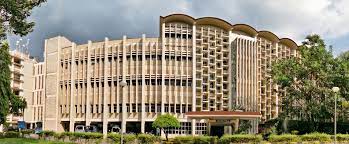IIT-Bombay has recently instituted a set of interim guidelines in response to disruptions arising from guest lectures on politically charged topics. These guidelines place restrictions on both students and faculty, requiring them to obtain permission from a review committee for the organization of talks or seminars with potential political implications. Additionally, police clearance is mandatory for any protest gatherings within the campus, organizers and speakers must also seek approval for video recording events.
The directive from the institute’s registrar underscores the importance of maintaining an apolitical stance while fostering an environment conducive to free and open discussions on educational subjects. The intention is to preclude activities or events that could lead to socio-political controversies, detracting from IIT-Bombay’s primary mission or tarnishing the institution’s reputation. This move comes in the aftermath of an incident involving a PhD student named Omkar Supekar, who raised concerns about a guest lecture on the Palestine situation, deeming it “inflammatory.” The lecture, organized by Professor Sharmistha Saha, prompted protests and threats after the student recorded and shared it online. Faculty members have rallied in support of Saha, condemning the threats and intimidation she faced.
To address the situation, the institute’s director has initiated a fact-finding committee to investigate the incident, with the possibility of taking “strict action” against those found culpable. Immediate action is also promised against students engaged in the protests. However, these guidelines have not been universally embraced, with criticism emanating from students, including the Ambedkar Periyar-Phule Study Circle, characterizing them as a “new set of gag rules.”
A senior professor has defended the necessity of guidelines, asserting that many of these measures were already in existence but were not consolidated into a comprehensive document. The guidelines primarily target politically connected events, and non-political pursuits such as technical, artistic, and literary activities are exempt from the approval process.
Responding to concerns about humanities departments organizing politically sensitive lectures, the professor clarified that the policy applies to external speakers or recorded talks. The review committee will evaluate each case on its individual merits. Regarding the requirement for police permission for protest gatherings, the professor explained that it aligns with routine measures taken by the Mumbai police to maintain peace, and the institute aims to adhere to these regulations.
The introduction of these guidelines at IIT-Bombay reflects an effort to strike a balance between promoting free expression and preserving an apolitical educational environment. The guidelines respond to recent incidents that generated controversy and threats against faculty members, with the institution aiming to address such challenges while upholding its core educational mission.

